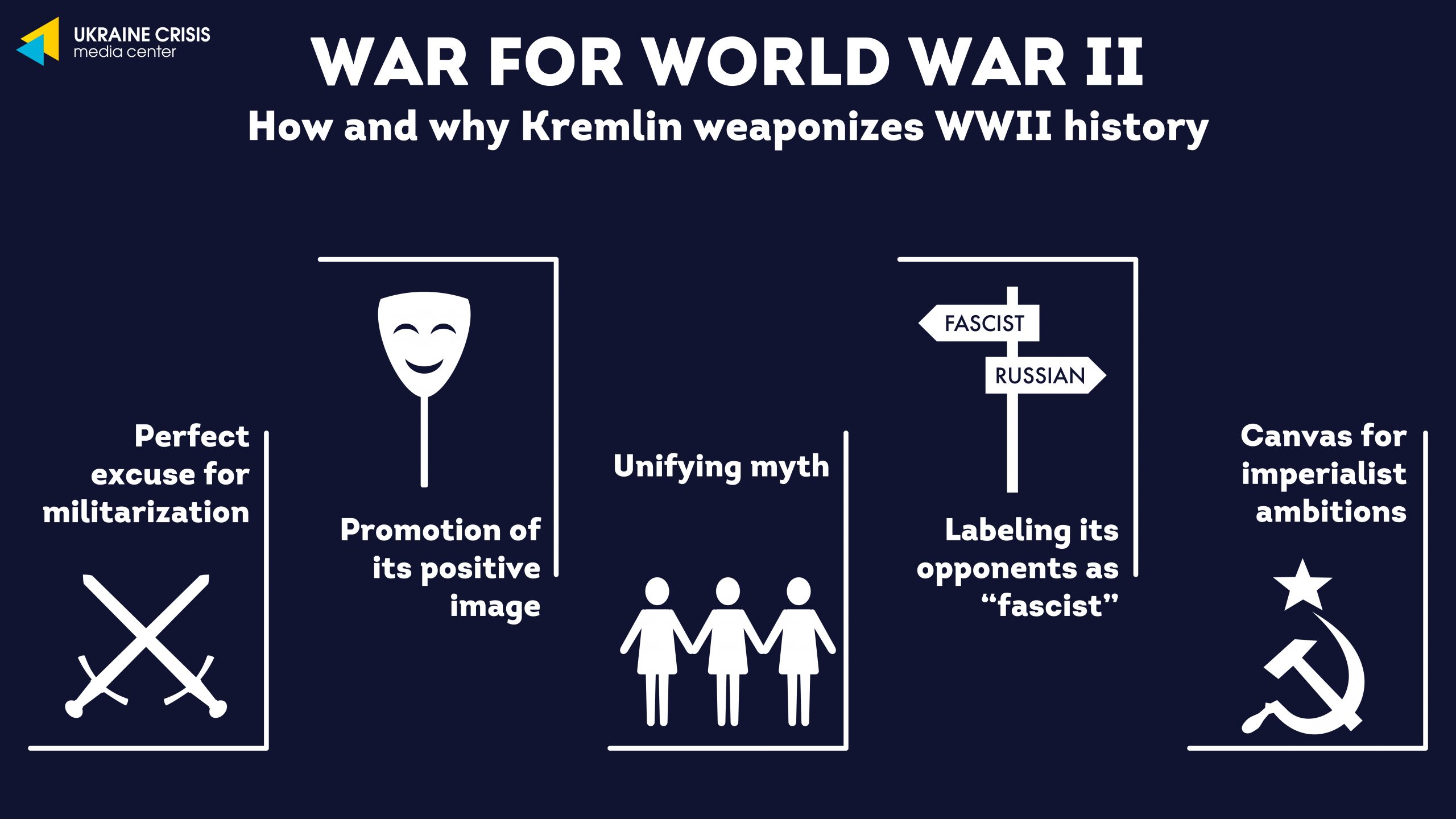
With May 9th approaching, Kremlin – as usual – intensifies its (anti)historical campaign, a mixture of Soviet whitewashing and bizarre accusations that everyone, from the United Kingdom to Poland, was responsible for unleashing the bloodiest conflict in world history. There is no time to learn from mistakes made by the Soviet leadership that contributed to the start of WWII, be it a Molotov-Ribbentrop pact or warmly greeting Nazi delegation at the Red Square in 1941, when Europe has already descended into horrors of war.
Moscow is too busy with preparations for celebrating the Victory Day in its own interpretation, arranging the online “Immortal Regiment” (which started as a grassroots commemoration initiative but was captured by the government) and scheduling an “air-parade”. Decision to postpone the actual one was a tough one for Kremlin, which put it off until it was too late – due to ongoing rehearsals in times of pandemic 15,000 soldiers were quarantined and 1000 had confirmed COVID-19 cases. There is a reason for why glamourized Victory Day and reshaped WWII history is so important for Kremlin – or rather 5 main reasons.
It’s a unifying myth
Running a big, heterogeneous country is always a challenge – especially if 20 years of Putin’s rule have nothing substantial to offer to the Russian population. Plummeting economy, omnipresent corruption, police violence, no trace of democracy and international backlash at Kremlin’s aggressive policy abroad are not exactly of great help in bringing people together. Processed history of WWII is akin to ideological band aid, put over the deep wound of Russia’s internal problems.
It’s a perfect excuse for militarization
Militarist tendencies are unavoidable for authoritarian regimes with imperialist ambitions. In Putin’s Russia they are vital. Fomenting hostility towards the West to solidify the nation around one leader, and expansionist wars require a certain public mindset. Installing it is sacred duty for a regime, where churches glorify military leaders and children are enrolled en masse in militarist movement.
It’s one of the few ways for Russia to promote its positive image
Kremlin’s foreign endeavors, from invading neighboring countries to electoral meddling, disinformation campaigns, assassinations on foreign soil and what not, get Russia more than just nasty looks from the international community. Sanctions make it harder for Putin’s regime to operate and distrust towards Kremlin follows every move it tries to make on the global arena. Where corrupt authoritarian regime can hardly offer mutually beneficial trustworthy relations or innovation, monopolizing victory in WWII is one of the few things left for attempts to create one’s positive image.
It’s a canvas for imperialist ambitions
While Russian propaganda has taken a turn to appropriating the victory, it still often talks about it as a joint Soviet legacy. Consistency has never been key to disinformation – mutually exclusive messages confuse the audience and broaden it, attracting those who want to believe distinctly different things. Without critical approach to the Soviet history, it serves as a pretext to bring former Soviet republics back into Russian historical and cultural space – and into the iron grip of Kremlin.
It’s a prerequisite to label Kremlin’s opponents as “fascist”
Appropriating victory over fascism and Nazism (Russian propaganda does not distinguish between two phenomena) is a perfect pretext for one of the favorite tools in fomenting hostility: labeling your opponents with strong negative markers. While Kremlin’s predominant (3rd most widely applied) narrative on Ukraine as “fascist” state is well known, Moscow goes further – practically all European states at displeasure of Putin’s regime have been labeled Nazi at some point.
These – not exclusive – reasons highlight why Kremlin dedicates so much resources to rewriting the history of world’s most gruesome conflict and reshapes its own role in it. And it will, without a doubt, continue to so. As war for the war, memory and responsibility, rages on, there is only one answer to militarism and perversion of history – commemoration based on evaluation of facts, no matter how uncomfortable they might make you feel.
